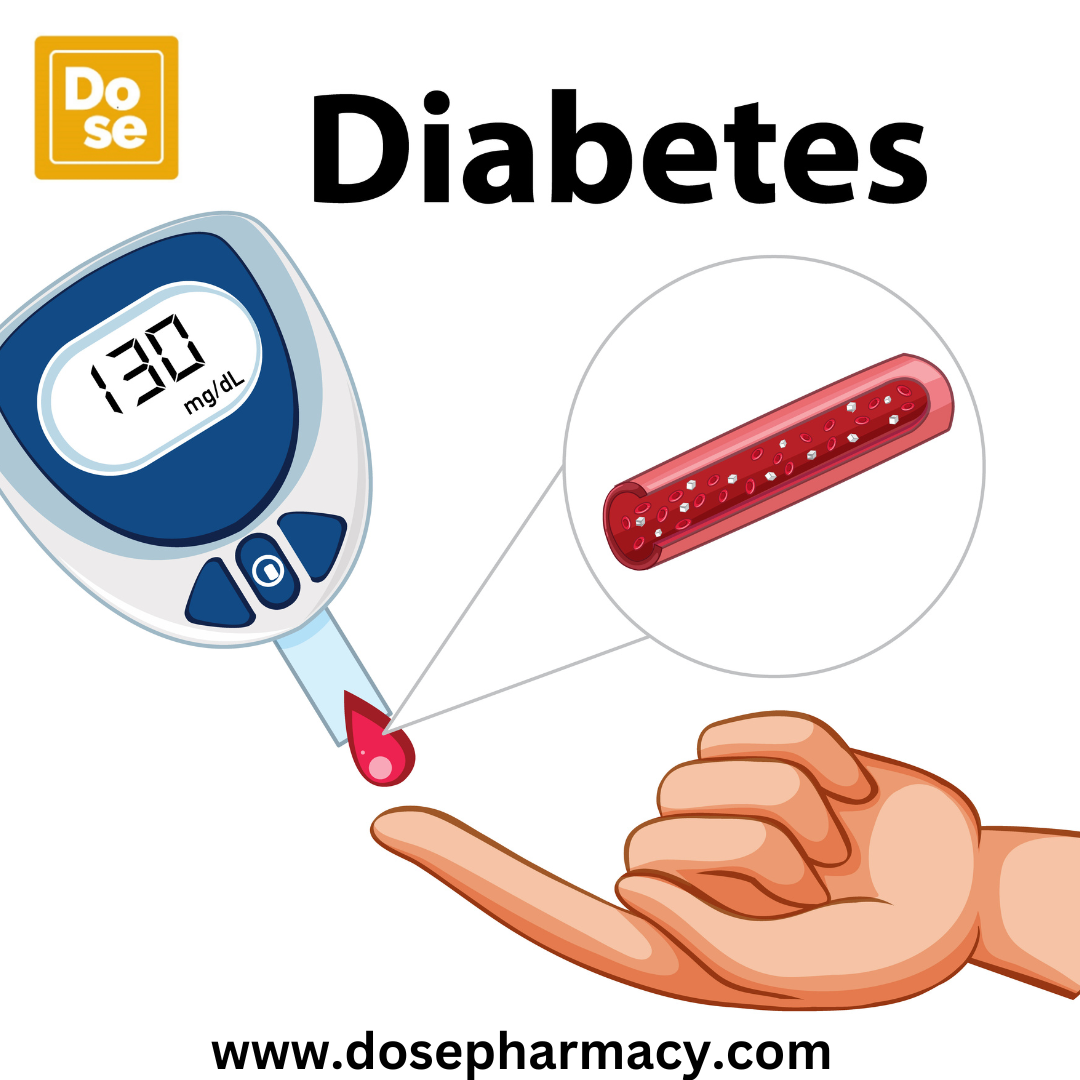Type 2 diabetes is a chronic condition characterized by high blood sugar levels due to insulin resistance or insufficient insulin production. Left unmanaged, it can lead to serious complications like heart disease, kidney damage, and nerve issues. However, the good news is that with the right lifestyle choices and medical interventions, type 2 diabetes can be effectively controlled, improving your quality of life and reducing the risk of complications. You can take Metformin Hcl 500 mg to treat type 2 diabetes. This article explores the essential strategies to manage type 2 diabetes, from diet and exercise to medication and stress management.
Understanding Type 2 Diabetes
Type 2 diabetes occurs when the body’s cells become resistant to insulin, a hormone that regulates blood sugar. Over time, the pancreas struggles to produce enough insulin, causing blood sugar levels to rise. Key risk factors include obesity, sedentary lifestyle, genetic predisposition, and age. Symptoms such as increased thirst, frequent urination, fatigue, and blurry vision are common but may develop gradually.
Controlling diabetes involves addressing its root causes and maintaining blood sugar levels within the recommended range. Let’s look at how this can be achieved.
Healthy Eating Habits
Diet plays a central role in managing type 2 diabetes. Focus on balanced, nutrient-rich meals that help regulate blood sugar levels.
Choose Complex Carbohydrates: Replace refined carbs like white bread and sugary snacks with whole grains, legumes, and vegetables. These foods have a lower glycemic index and release sugar slowly into the bloodstream.
Include Lean Proteins: Protein-rich foods like fish, chicken, tofu, and beans help stabilize blood sugar and keep you full longer.
Healthy Fats: Incorporate sources of unsaturated fats such as nuts, seeds, avocados, and olive oil, which support heart health.
Portion Control: Eating smaller, frequent meals helps prevent blood sugar spikes.
Limit Sugary Foods: Reduce or avoid sodas, candies, and desserts high in added sugars.
Consulting a dietitian can help tailor a meal plan to your specific needs and preferences.
Regular Exercise
Physical activity enhances insulin sensitivity, enabling your body to use glucose more effectively. Aim for at least 150 minutes of moderate exercise per week, such as:
Aerobic Exercises: Walking, jogging, swimming, or cycling.
Strength Training: Lifting weights or resistance exercises build muscle, which improves glucose utilization.
Flexibility and Balance Exercises: Yoga or tai chi can improve overall fitness and reduce stress.
Start gradually, especially if you’re new to exercising, and always consult your healthcare provider before starting a fitness routine.
Weight Management
Excess weight, especially around the abdomen, increases insulin resistance. Losing just 5-10% of your body weight can significantly improve blood sugar control. Combine healthy eating with exercise to achieve sustainable weight loss.
Monitor Blood Sugar Levels
Regular blood sugar monitoring is crucial for understanding how your body responds to different foods, activities, and medications. Use a glucometer to track your levels and keep a record for your healthcare provider.
Fasting Blood Sugar: Ideally between 70–130 mg/dL.
Post-Meal Blood Sugar: Should be below 180 mg/dL two hours after eating.
This helps in adjusting your treatment plan as needed.
Medications and Insulin Therapy
If lifestyle changes aren’t enough to control blood sugar, your doctor may prescribe medications. Common options include:
Metformin: Reduces glucose production in the liver and improves insulin sensitivity.
Sulfonylureas: Stimulate the pancreas to release more insulin.
GLP-1 Receptor Agonists: Slow digestion and promote insulin secretion.
SGLT2 Inhibitors: Help the kidneys excrete excess sugar through urine.
Insulin Therapy: For some individuals, insulin injections may be necessary.
It’s essential to follow your doctor’s prescription and discuss any side effects or concerns.
Stress Management
Stress can raise blood sugar levels by triggering the release of hormones like cortisol. Managing stress effectively is vital for diabetes control. Consider these techniques:
Mindfulness Meditation: Helps reduce anxiety and improve focus.
Deep Breathing Exercises: Simple breathing techniques can quickly lower stress.
Hobbies and Social Activities: Engaging in enjoyable activities can boost mental well-being.
Professional Support: Seek therapy or counseling if stress feels overwhelming.
Get Adequate Sleep
Poor sleep can disrupt hormone levels and increase insulin resistance. Aim for 7-9 hours of quality sleep per night. Establish a consistent sleep routine by going to bed and waking up at the same time daily. Avoid screen time and heavy meals before bed.
Avoid Smoking and Limit Alcohol
Smoking: Nicotine worsens insulin resistance and increases the risk of complications like heart disease. Quitting smoking is one of the best steps you can take for overall health.
Alcohol: Limit intake as it can cause blood sugar fluctuations. Stick to moderate consumption (up to one drink per day for women and two for men).
Stay Hydrated
Dehydration can elevate blood sugar levels. Drinking plenty of water supports kidney function and helps flush excess sugar from the body.
Regular Medical Check-Ups
Diabetes management is a team effort involving regular visits to your healthcare provider. Check-ups often include:
HbA1c Test: Reflects your average blood sugar levels over 2-3 months.
Lipid Profile: Monitors cholesterol and triglycerides.
Kidney Function Tests: Ensures your kidneys are filtering waste efficiently.
Eye Exams: Detect early signs of diabetic retinopathy.
Foot Exams: Prevents infections and complications from neuropathy.
Early detection of complications allows for prompt intervention.
Preventing Complications
Effective management of type 2 diabetes can prevent or delay complications such as:
Heart Disease: Keep cholesterol and blood pressure in check.
Neuropathy: Protect nerves by maintaining blood sugar levels.
Kidney Damage: Follow dietary recommendations to reduce strain on the kidneys.
Eye Problems: Control blood sugar and schedule regular eye exams.
Empowering Yourself Through Education
Educate yourself about diabetes to make informed decisions. Join support groups or diabetes management programs for practical tips and motivation. Sharing experiences with others can help you stay on track.
Managing type 2 diabetes is a lifelong commitment, but it doesn’t have to be overwhelming. By adopting healthy eating habits, staying active, monitoring blood sugar, and following medical advice, you can effectively control the condition and lead a fulfilling life. Remember, small consistent steps often yield the most significant results. Stay proactive, and don’t hesitate to seek support from healthcare professionals, family, and friends. Together, you can take charge of your health and keep




